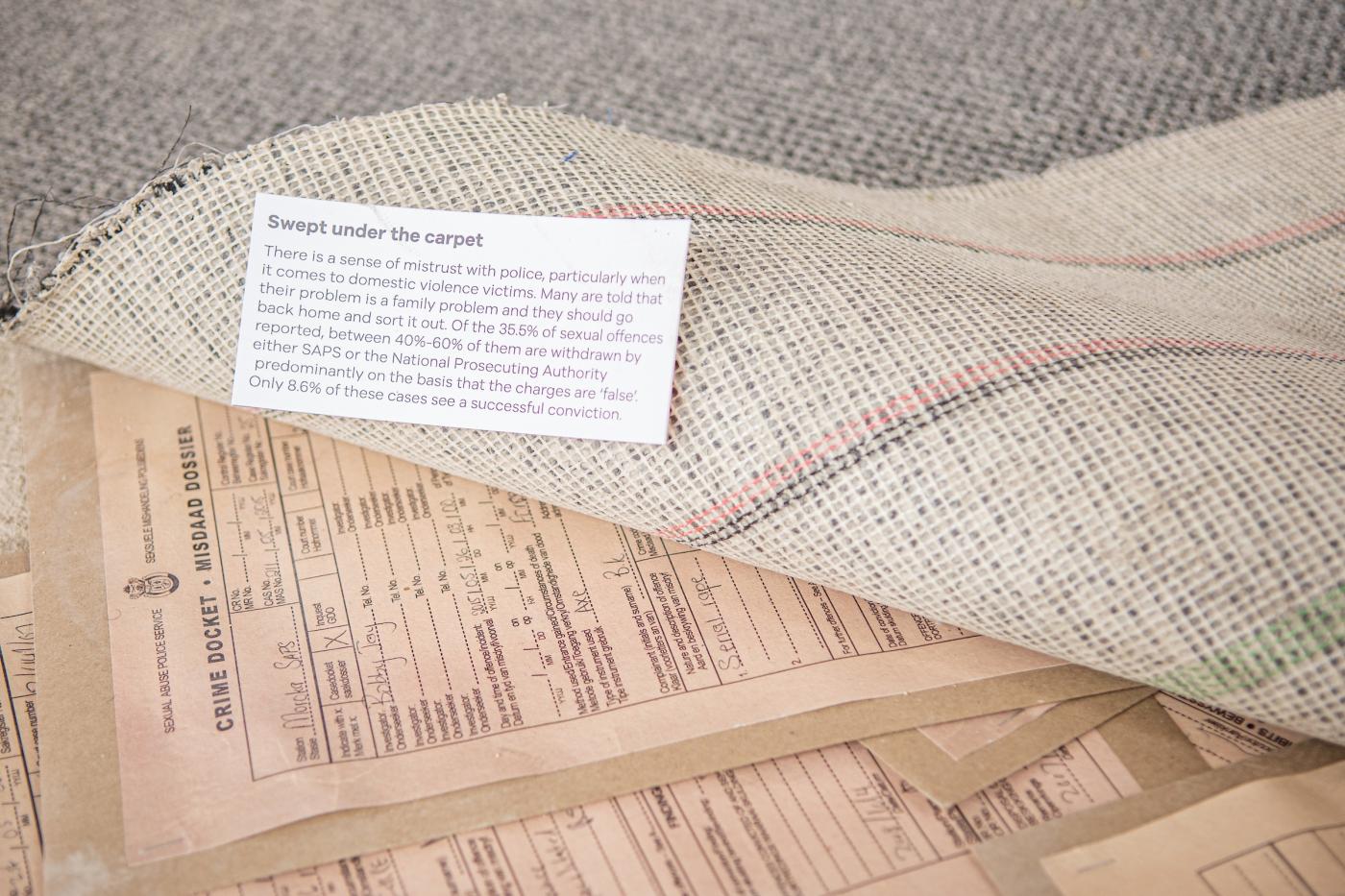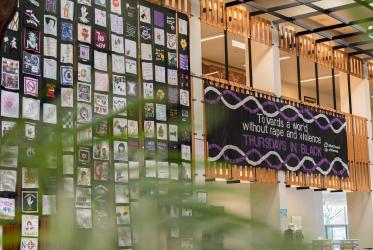Frantseska Altezini, a board member with the YWCA of Athens, and an executive committee member of the YWCA, Greece, said that the YWCA in Greece has a variety of programs and partnerships with both private and public foundations to help address gender-based violence.
She and other speakers said that church action against femicide needs to begin at the theological level. “We think we should rewrite the holy texts in a modern way of viewing with the cooperation of feminist theologians,” she said.
Faye Simanjuntak, founder of Rumah Faye—a nonprofit working to eradicate child sexual abuse, trafficking, and exploitation—said that creative solutions are rooted in societies that promote women as equal human beings. “There are certain matrilineal societies in Indonesia where women do have an upper hand but by and large women are expected to be more submissive,” she said.
Dr Nontando Hadebe, a Catholic post-colonial feminist theologian, who currently serves as the international coordinator of Side by Side, urged people to be aware that their current context is a legacy of the colonialist hierarchies of racism and classism. "We are rooted in a particular context,” said Hadebe. “We need to go back to other means of relationships, where violence is not a criteria or a go-to alternative, so that we are responsible about what we do.”
Rev. Dr O. Kehinde Babarinde, national director, Education, Dialogue and Value System Initiatives, and adjunct lecturer, West Africa Theological Seminary, said women often bear the brunt of violence centering around drugs, kidnappings and political thuggery in Nigeria—and in some cases Nigerian women are killed for money. “People use the parts of the body of women for rituals,” he said. “It may sound like a myth but there is this belief in African traditional culture of mystical powers that may bring money and prosperity to an individual.”
Some believe that parts of a women’s body may be an instrument for such metaphysical means. “We preach against that,” said Babarinde.
Stephanie Dunn, a lawyer who serves as the legal and advocacy officer for the Fiji Women's Crisis Centre, said that changing the patriarchal structure is very important. “It’s about creating those change agents in these communities,” she said, adding that gender-based violence counseling is a form of crisis counseling. “We also need male advocacy for women's human rights.”
What should churches be doing?
Panelists and participants formed small groups online to share ideas for best practices around the world. Panelists then reported back on the ideas shared by each group.
“The World Council of Churches should generate a curriculum suggestion that will help theological institutions to have not necessarily a uniform but a contextualized instrument within the context of our curriculum with theological institutions so that pastors are taught in their schools,” said Babarinde.
“First and foremost that the Bible needs to be interpreted the way it was made, not to meet the agenda of the person who is preaching or the person at the pulpit,” said Dunn, who added that churches should build capacity so that people understand what gender-based violence is. “It’s also about your structures as well,” she said.
Simanjuntak suggested emphasizing religious counseling and making sure there is a Biblically-based foundation on the approach towards eradicating femicide.
“We think that we should reread the theological texts in a modern way of viewing with the cooperation of feminist theologians,” said Altezini.
Hadebe urged churches to ensure that theology is practical and that we build a whole church that is gender-competent. “Translate theology into programs throughout the church—gender-competent churches that embody and speak out.”
Rev. Nicole Ashwood, WCC programme executive for Just Community of Women and Men, urged people to be aware of the fact that this is definitely not the end of the conversation. “What we have simply done is begun to shine a flashlight so that we can become aware, and having raised awareness, move toward advocacy and activism, and hold ourselves accountable to the change that the world needs to see,” she said.
The next online event will be held 2 December at 15:00 CET. Through these two webinars, the World Council of Churches (WCC) in collaboration with ACT Alliance, Lutheran World Federation, World YWCA, and WCC regional partners are raising awareness around missing and murdered women as one aspect of the 16 Days Against Gender-Based Violence (25 November – 10 December).
Interested participants should register in advance here









